GuanaData, a project of The Voice of Guanacaste, investigates the public budget of six municipalities in the country, including Limon. What are you going to read about in this investive report?
- In 2013, Nestor Mattis assured six associations of senior citizens that he would build a health center exclusively for them, despite the fact that the Social Security Fund can’t create Ebais clinics for specific populations in the country.
- Fodesaf to build a senior day center. This building is the one they want to transform into an Ebais, but Fodesaf alleges that this is illegal. If the municipality insists, senior citizens could lose their meeting place.
- People 65 and over are the ones who vote the most in the municipal elections. In 2016, 43% of this population went to the polls in the central canton of Limon.
***
For Angela McNight, the first Wednesday of each month is reserved on her calendar for one thing only: she has to meet with the Dorados del Caribe, one of the six associations of senior citizens in the canton of Limon, which has 921 members.
Formerly a nursing assistant at Tony Facio Hospital, the 74-year-old is president of the group. Until the pandemic started, she led the meetings at the Day Care Center for Senior Citizens (Cecuam).
“The Cecuam really belongs to the elderly. Since I started going there, I feel good,” Angela said. Since she has had knee surgery twice, she is very excited about one promise that the mayor of Limon, Nestor Mattis, made her and the leaders of other associations in 2013 in the middle of his first term in office: an Ebais clinic exclusively for the elderly.
Almost seven years later, senior citizens continue to vote in municipal elections, hoping that Mattis will fulfill what was then his main political promise. No age group has a better turn out at the polls in Limon than those who are 65 and older.
However, that promise is practically impossible to fulfill for several reasons, the first of which is that it is illegal. The Municipality of Limon built the Cecuam in 2018 with a budget from the Social Development and Family Allowances Fund (Fodesaf).
The condition for transferring the funds was that the money had to be invested in a day center, and that is what was done. In fact, it functions that way right now. The building, located in the Triunfo neighborhood in the center of Limon, cost ₡200 million (about $350,000) and is one of two public centers in Limon that allows groups of senior citizens, like Angela’s, to have a place to socialize and exercise.
In 2018, the municipality asked the Costa Rican Social Security Fund (CCSS) to transform the building into an Ebais. Since public funds were used, the law prevents changing its purpose. If the Municipality of Limon insists, Fodesaf can require that the municipality return the ₡200 million they invested. In other words, they have the right to recover all of the project’s assets, including the building that brings happiness to Angela and Limon’s seniors.
The municipality has known about this lack of legal support since May 22, 2019, when Fodesaf sent the first legal document, which GuanaData has a copy of. In the document, the request to transform the Cecuam into a health center is rejected. That same year, however, Mattis made the same campaign promise during the 2020 elections.
The director of Fodesaf, Greivin Hernandez, confirmed to The Voice that changing the use of the funds is illegal. In addition to the letter sent in May, they sent other letters in July and November 2019, and one more in June 2020. GuanaData has a copy of all of them, but the senior citizens interviewed said that they are unaware of all of this process.
The second reason that impedes it is that the Caja’s legal framework does not take into account the possibility of making Ebais clinics exclusively for specific populations. The institution’s services are universal: anyone should be able to use them, including someone elderly.
In 2017, Mattis presented an agreement draft to CCSS. The Health Services Projection Directorate had it in the “study phase” for three years, until GuanaData sent an inquiry on Monday, June 22. As a result of the inquiry, the directorate issued preliminary considerations via email, stating “It is not appropriate to create specialized units since the elderly are covered by the Care Network.”
In that email, the directorate insists that it is not necessary to make an exclusive Ebais because its health centers cover the needs of senior citizens. However, that decision is not yet final. The agreement draft can be returned to the municipality for corrections and resent to the directorate for a new study. Both the municipality and the directorate admit that they don’t expect updates soon, due to the pandemic.
Getting Ready for the Future
Senior citizens insist on the need to have a health center just for them. In different interviews with GuanaData, they said they feel uncomfortable from the moment they set foot in a CCSS clinic.
“The Costa Rican population still doesn’t understand what it means to become a senior,” Angela said. “When we older people go to an Ebais, other patients get angry because they treat us first. Doctors also lose their patience and don’t explain things to us so thoroughly ”.
The regional director for Limon, Wilmar Rojas, said that a specialized medical center would serve to prepare for the future because the elderly population is increasing throughout the country.
Central Limon is the second most populated canton in the province, after Pococi. As of 2020, 12.5% of the area’s population are over 60, according to the Central American Population Center. By 2050, this percentage is expected to double to 26.3%.
With Cecuam closed due to the pandemic, its visitors have started holding meetings by means of video calls. Angela does so with “los Dorados.” When the quarantine is over, it’s a guarantee for her that she will be able to hug her friends and lead meetings in the hall. The virus is also a constant reminder of the promise that Mattis and the Municipality still haven’t kept.
A Place that Rejuvenates
Fodesaf has a mechanism in charge of financing projects that strengthen the Senior Care Network. The municipality applied to this program in 2015 and thus built the Cecuam by February 19, 2018.
At first glance, the building looks like another community hall that gets sweltering in the Caribbean heat. The space has two walls, six folding tables and plastic chairs. But when the more than 800 seniors arrive, the center comes to life. In the afternoons, the women learn embroidery patterns, the men play dominoes, and everyone takes Zumba classes.
“Before we all had to stay home, the place rejuvenated the seniors of Limon,” Angela commented. “I can’t explain how good it feels to have a place that is suitable for us where we can meet and be sure that we aren’t bothering anyone.”
Angela recalled that before the Cecuam, there weren’t many options for public meeting places for the elderly. Some could afford to rent a room in the iconic Black Star Line building prior to the 2016 fire. However, most didn’t because they didn’t have the financial resources or because they were asked to move by staff when other activities turned up.
Fodesaf financed the Cecuam specifically to change this situation. Its director, Greivin Hernandez, said that Municipality has not yet presented them the final report on the project’s construction. “They still need to put up the identification plaque and justify the differences between the equipment that was planned and the equipment that was acquired,” Hernandez said. The municipality was advised of this in a prevention letter.
The Cecuam still needs shoulder presses, a stationary bike, medical gurneys, and physical therapy equipment, such as a treadmill. The municipality argued that the building cost more than what was budgeted and that they hope to be able to buy the equipment when the pandemic ends.
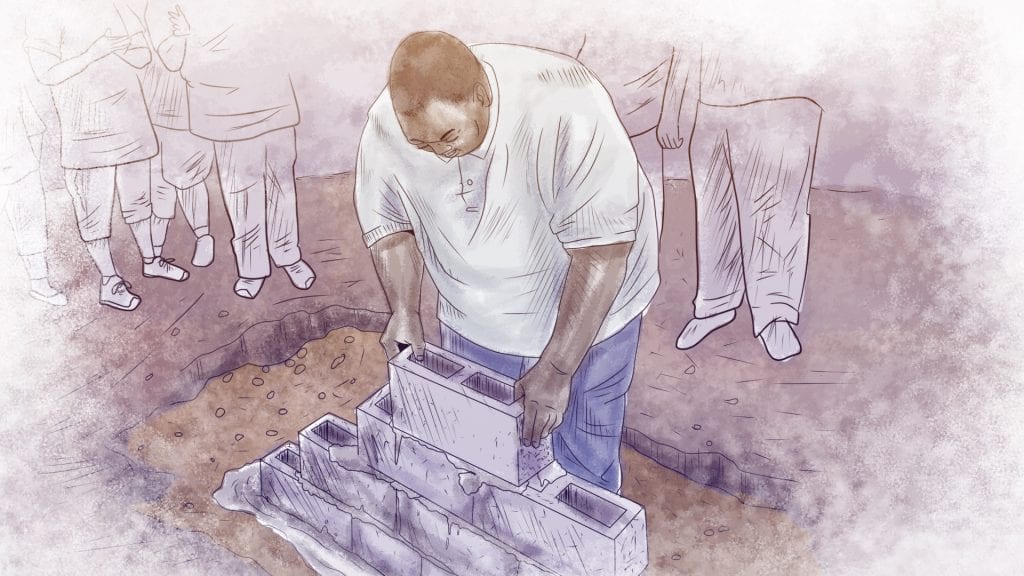
Nestor Mattis and the municipality of Limón inaugurated Cecuam February 19, 2018. Credits: Roberto Cruz.Photo: Roberto Cruz
Third Impossibility: There Is No Budget for the Ebais
The agreement that the municipality proposed to the CCSS projects that the Cecuam will become a medical center and details the construction of two more phases: a multipurpose room, which would replace the current recreational area, and a swimming pool.
Mattis’ promise hides one more problem. Even if the building’s purpose could be changed to become an Ebais, the municipality has no budget to build it.
The person in charge of social projection for the municipality, Kimberly Chollette, told The Voice that before the pandemic, they had ₡50 million (about $88,000) from the municipal budget to invest in the Cecuam, but it was used this year for renovating the building.
“Since it’s empty now due to the pandemic, we are taking the opportunity to put up the chain link fencing perimeter and a water evacuation system,” said Chollette.
“We are waiting for the agreement to be approved to start talking about budget. With the whole COVID-19 situation, I don’t think that this expense will be budgeted for 2021, but it would be approximately ₡60 million (about $105,000),” the official added.
The agreement draft establishes that CCSS would hire the human resources: a medical professional, a nurse and a person to manage the appointment system and online prescriptions.
The municipality would pay for the infrastructure, cleaning services, security, surveillance, and purchase all the necessary medical equipment.
According to Meditek, one of the companies that has been a medical equipment provider for the CCSS, basic implements like gurneys cost between $4,300 and $7,000. The price goes up for specialized equipment. For example, a single X-ray machine can cost up to $200,000.
When the pandemic is over and senior citizens return to the Cecuam, they will find an improved version of the place that they appreciate so much. But to replace the recreation hall, install the pool and equip the Ebais, there is no money.
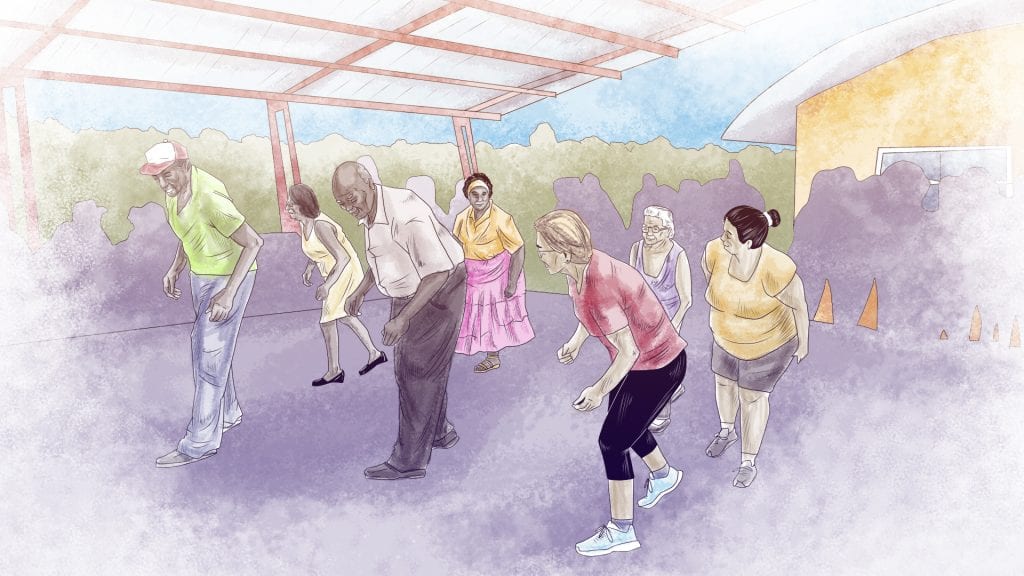
Besides the Victor Manuel Casco Torres Home for the Elderly, Cecuam is the only public and exclusive center for the elderly population in the canton. Credits: Roberto Cruz.Photo: Roberto Cruz
Why Make an Exclusive Ebais?
The regional director for Limon, Wilmar Rojas, affirmed that creating health centers for specific populations, such as the elderly, would be ideal.
“An exclusive center is going to give this population group differentiated and prioritized care. It is going to allow us to detect early on the most frequent pathologies that affect the health of the elderly. For example, Alzheimer’s or cancer,” Dr. Rojas affirmed.
A timely diagnosis is positive news for all patients, but in the elderly, it can be the difference between life and death. Dr. Rojas points out that the Ebais would also benefit the population under 65 years of age because it would help decongest the general health system by freeing up spaces in the health districts of Limon and La Estrella. These two areas cover the canton with 10 and 5 Ebais clinics, respectively.
The central canton is the one that serves the most elderly people, even though Siquirres has the highest population in the province. In 2019, while the Siquirres health district treated 20,689 patients aged 65 or over, there were 25,503 in the Limon health district and 4,391 in La Estrella.
The only geriatrics and gerontology specialist in the entire province works for the Siquirres health district, an hour by car from downtown Limon. Without a person who understands the rhythm of life of the elderly, diagnosis is more difficult.
“We have received feedback from this population, not only in Limon, but throughout the country,” explained the director of the Limon health district, Kency Evans. “They tell us that aside from rejection from other patients, the consultations feel extremely short and sometimes they don’t explain the prescriptions patiently.”
An exclusive Ebais would make it possible for the elderly of Limon for the first time to get medical attention that helps them understand their conditions and where they aren’t made to feel that they took time away from another person.
They tried this for the first time last year. The Cecuam and CCSS collaborated in holding health fairs in the center. Once a month, they visit to give them vaccinations or dental check-ups.
At 73, Jose Luis Nuñez is grateful for this change. Like Angela, he is part of an association of retirees, Grupo Recope, with 43 seniors from Limon.
“I was getting tired of going to the normal Ebais because they prescribed a treatment for an illness and the next month, since another doctor sees me, they prescribe something else. When they make the Cecuam Ebais, the doctor will get to know each one of us and our information is going to be connected,” Nuñez asserted
Fulfill a Promise from Two Terms Ago
When the Supreme Electoral Court announced that this would be Nestor Mattis’ third year as mayor of Limon, Mayron Vega was relieved.
“Mattis has been a pillar for us. We thank God that this year he stayed [in office] again to continue the Ebais project. When another politician takes over, the new one wants to wipe out what the previous one did,” remarked Vega, who is president of Asnape, the largest senior group in the canton.
Limon’s senior citizens are a large and active population.
In addition to the Dorados, with 61 members, there are five other groups that share the Cecuam: Grupo Pura Vida with 52 members, the Association of Disabled People of the Caribbean Region with 30, Grupo Recope with 43, Grupo Millenium with 35 and the ASNAPE Group, which is made up of people who receive a Social Security Fund pension, and there are about 700 members just in Limon center.
Representatives from each group have regular meetings with the mayor of Limon, Nestor Mattis. The last meeting this year was in March.
2020 is the third year in a row that Mattis has held office. When he won the position for the first time in 2010, abstentionism in the central canton of Limon reached 76%. In 2016, 60.2% of the population did not vote and in 2020, the percentage was 65.42%.
However, participation of senior citizens is stronger than that of the rest of the population. In 2016, 39% of people under 65 participated in municipal elections while 43% of seniors voted. This population represents 11% of the voters in Limón.
The populations that most feel the historical absence of the national government tend to be more attached to local governments, noted Ronald Alfaro, a researcher from the Nation State Program, who observed that cantons farther from the center tend to participate more in municipal elections than in the national ones.
“The law itself is an incentive for a person, like the mayor, to stay in power for a long time because it doesn’t limit the number of years. They learn to maneuver these circumstances: the pins they have to move to ensure that the low levels of participation guarantee that they continue,” Alfaro stated.
The analyst pointed out that this converges with another phenomenon nationally. Although there are more people under the age of 60 registered to vote, those who vote the most are people over 60.
“If a person stays in power for an indefinite period of time, it can be detrimental because they will continue to offer services to only one population group, the one that keeps them in power, while others are ignored. The problem is how many of those expectations they can meet. Hope can easily turn into disappointment,” Alfaro warned.
********
This note is part of the fourth edition of the GuanaData project, which this time is carried out by La Voz de Guanacaste in conjunction with the International Center for Journalism, with resources from a grant from the United States Embassy. GuanaData intends to analyze the budgets of six local governments in Costa Rica in order to make the public function more transparent and fight corruption within the municipalities.



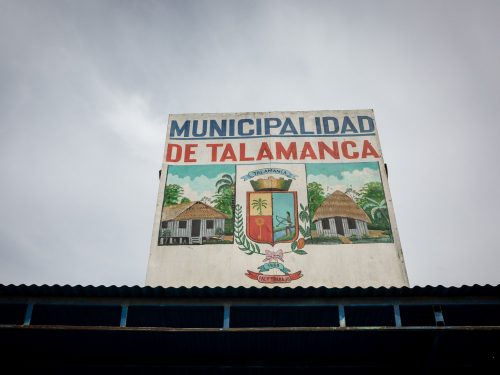
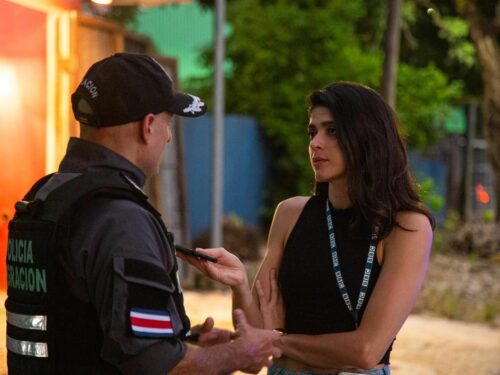
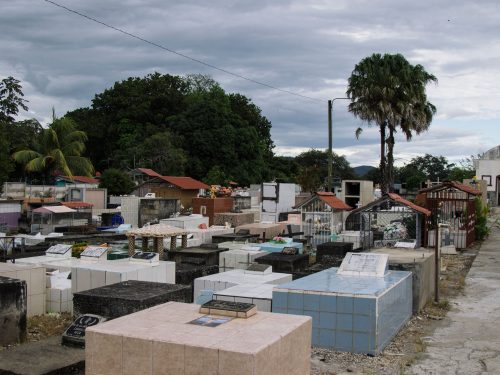

Comments